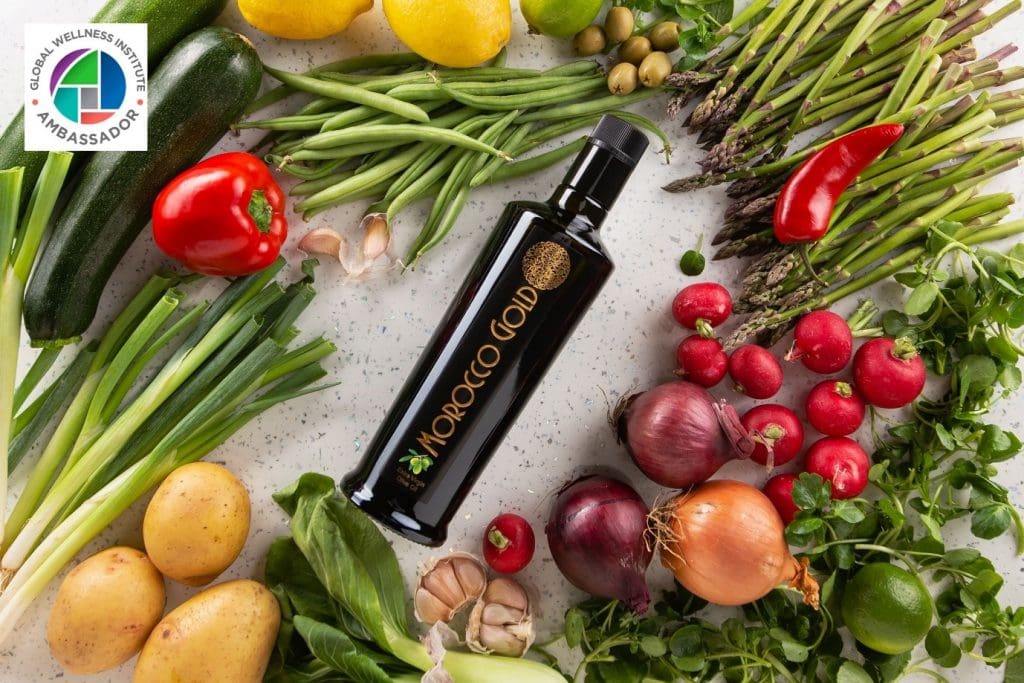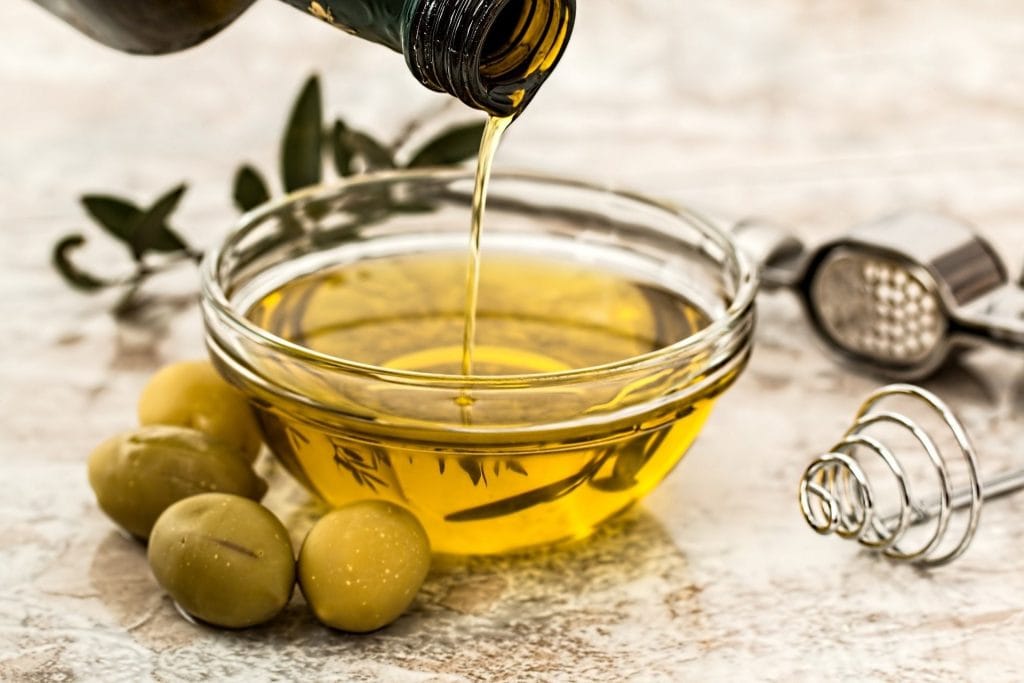New Study Highlights Negative Impact Of Processed Food
Updated August 7th 2024

Summary
- Extra virgin olive oil is a minimally processed food with multiple health benefits.
- Significant ultra-processed food consumption leads to higher mortality risks by several causes.
- simply cold-pressed from olives that have been crushed and then strained.
- Because extra virgin olive oil is minimally processed, it is rich in monounsaturated fats, polyphenols, and antioxidants.
Contents
Choosing unprocessed foods like extra virgin olive oil reduces mortality risks
Extra virgin olive oil is a great example of a minimally processed food that offers numerous health benefits. And, according to a major new study in the BMJ, the impact of ultra-processed food consumption on human health may be more significant than the food’s nutritional qualities.
The research paper published by the Journal of the British Medical Association (BMJ) found that significant ultra-processed food consumption leads to higher mortality risks by several causes.
The key takeaway here is that the quality of your diet can influence your lifespan. By focusing on natural, minimally processed foods, you can improve your overall health and longevity.
We live in a fast-paced world where convenience often trumps health. Processed foods are not only easy to prepare but also palatable, making them a staple in many households. However, these foods come with hidden dangers. Studies have shown that diets high in processed foods can lead to chronic conditions like obesity, diabetes, and cardiovascular diseases. When you consume these foods regularly, you’re ingesting unhealthy levels of sodium, trans fats, and artificial additives.
So how can choosing foods with little or no processing like extra virgin olive oil help reduce these risks?
Is Extra Virgin Olive Oil A Processed Food?
Processed foods are defined as any food that has been altered from its natural state in some way during manufacturing. This can include everything from adding preservatives to changing the texture or flavor. processed foods are ubiquitous in the modern world, and they often seem like a convenient option. However, there are several good reasons to reduce your intake of processed foods. First of all, processed foods tend to be high in unhealthy ingredients like added sugars, sodium, and unhealthy fats. These ingredients can have negative impacts on your health, including increasing your risk of obesity, heart disease, and type 2 diabetes. processed foods also generally contain fewer vitamins and minerals than their unprocessed counterparts.
Most processed foods are unhealthy and should be avoided, but there are a few exceptions. One of these is extra virgin olive oil. Unlike other oils, extra virgin olive oil is not processed with chemicals or solvents. Instead, it is simply cold-pressed from olives that have been crushed and then strained.
Because extra virgin olive oil is minimally processed, it retains a higher level of beneficial nutrients compared to other oils. It is rich in monounsaturated fats, polyphenols, and antioxidants—all vital for maintaining good health. Therefore, including extra virgin olive oil in your diet allows you to enjoy the benefits of an unprocessed food while enhancing the flavor of your dishes. As a result, it retains its natural flavor and nutrients, making it a healthy choice for cooking or dressing salads. While extra virgin olive oil is technically a processed food, it is much healthier than most other processed options.
Additionally, many processed foods contain harmful chemicals that can potentially disrupt your hormones or increase your risk of cancer. For these reasons, it is generally best to choose whole, unprocessed foods whenever possible. However, if you do opt for processed foods, be sure to choose ones that are made with healthy ingredients and minimal processing.
Health Benefits Of Cold-Pressed Extra Virgin Olive Oil
Rich in Healthy Fats
One of the standout features of extra virgin olive oil is its high content of monounsaturated fats. These healthy fats are known to reduce bad cholesterol levels in the blood, lowering the risk of heart disease. Unlike saturated fats found in processed foods, monounsaturated fats are beneficial for cardiovascular health. Incorporating extra virgin olive oil into your diet can help maintain a healthy lipid profile, promoting overall heart health.
Packed with Antioxidants
Antioxidants are crucial for neutralizing harmful free radicals in the body, and extra virgin olive oil is packed with them. Polyphenols, a type of antioxidant found in this oil, have been shown to have anti-inflammatory properties. They help protect your body against oxidative stress, which is linked to various chronic diseases, including cancer and Alzheimer’s disease. Regular consumption of extra virgin olive oil can boost your antioxidant intake, helping you stay healthier for longer.
Aiding Weight Management
Contrary to popular belief, not all fats contribute to weight gain. The monounsaturated fats in extra virgin olive oil can actually aid in weight management. These fats help you feel full and satisfied, reducing the likelihood of overeating. Additionally, extra virgin olive oil has been found to improve metabolic health, further supporting weight management efforts. Including this oil in your diet can help you achieve a balanced, healthy weight.

Extra virgin olive oil is rich in antioxidants and healthy fats, and it has been shown to improve heart health and blood sugar control. Extra virgin olive oil can be used in a variety of ways, such as drizzling it over salads or using it in place of other oils when cooking. When choosing an olive oil, be sure to look for one that is cold-pressed and certified extra virgin for the best results.
As reported in Olive Oil Times, the same edition of the BMJ also featured American research demonstrating a link between high consumption of ultra-processed food and colorectal cancer, with significant differences in the impact between men and women.
Investigating the results of their 15-year study on more than 20,000 individuals, the Italian researchers tested the effects of consuming ultra-processed food, classified as such by NOVA ratings, while also considering their nutritional classification from the Food Standards Agency Nutrient Profiling System (FSAm-NPS).
NOVA was developed by researchers at the University of São Paulo in Brazil. According to a 2019 United Nations Food and Agricultural Organization paper, NOVA definitions of ultra-processed foods are the most applied in scientific literature.
FSAm-NPS, on the other hand, is currently used to rate foods by relevant front-of-pack-labeling systems, such as the French-born Nutri-Score.
“We felt the need to see if Nutri-Score could really help improve public health, as the European Commission is currently considering its introduction as an E.U.-wide mandatory food rating system,” Marialaura Bonaccio, senior epidemiologist at the Italian Mediterranean Neurologic Institute and co-author of the study, told Olive Oil Times.
“In the last 10 years, research has gone beyond focusing on the sole nutritional composition of foods,” she added. “Thanks to the work of Carlos Monteiro and others, the research has begun focusing on how food is transformed and manipulated.”
In the study, the authors wrote that “a significant proportion of the higher mortality risk associated with an elevated intake of nutrient-poor foods was explained by a high degree of food processing. In contrast, the relation between a high ultra-processed food intake and mortality was not explained by the poor quality of these foods.”
As explained by OOT:
The food industry commonly uses additives to give specific colors to food and sweeten or preserve it. Other additives cover many functions, such as enhancing flavors, suppressing fungi, inhibiting particular characteristics of the food or sanitizing the food itself.
OOT
“The processing of foods might play a role in health beyond their nutritional composition, through a variety of mechanisms triggered by non-nutritional components, such as cosmetic additives, food contact materials, neoformed compounds, and degradation of the food matrix,” wrote the researchers.
Easy Ways to Incorporate Extra Virgin Olive Oil into Your Diet
Drizzling Over Salads
One of the easiest ways to incorporate extra virgin olive oil into your diet is by using it as a dressing for salads. Its rich, robust flavor enhances the taste of fresh vegetables, making your salads more enjoyable. Simply drizzle a tablespoon of extra virgin olive oil over your greens, add a splash of lemon juice, and season with salt and pepper for a delicious, healthy salad dressing.
Cooking with Extra Virgin Olive Oil
Extra virgin olive oil is versatile enough to be used in cooking. Whether you’re sautéing vegetables, grilling meats, or baking, this oil can add a depth of flavor to your dishes. It’s important to note that extra virgin olive oil has a lower smoke point compared to refined oils, so it’s best used for low to medium-heat cooking. This ensures that the oil retains its nutritional properties while adding a delightful taste to your meals.
Adding to Smoothies
Believe it or not, you can even add extra virgin olive oil to your smoothies. A teaspoon of this oil can boost the nutrient content of your smoothie, providing you with healthy fats and antioxidants. It pairs well with ingredients like spinach, avocado, and berries, blending seamlessly into your beverage. This is a unique and effective way to reap the health benefits of extra virgin olive oil.
“The health risks that we have found in our study are related to significant consumption of ultra-processed food,” Bonaccio added. “Therefore, the suggestion here is not to abolish that kind of food but to limit its intake. People should stop focusing only on the nutritional profile of food. They need to start exploring the degree of processing in the food they buy.”
Morocco Gold: A Single Source Extra Virgin Olive Oil
When it comes to olive oil, you generally get what you pay for. The best olive oils are made from a single source of olives, and they undergo a lengthy and expensive process of cold pressing and filtering.
As a result, they tend to have a richer flavor and a higher concentration of healthy compounds. However, not everyone can afford to splurge on the best olive oil every time they cook. Those on a tighter budget may be tempted to look for an olive oil that is made from a blend. These oils are usually less expensive, but they may not have the same health and taste quality as the single source oils, such as Morocco Gold. Just be sure to check the label carefully to make sure you’re getting a quality product. When it comes to olive oil, quality is always more important than price.
We are so proud of everything that goes into Morocco Gold Extra Virgin Olive new harvest that we can’t wait to put it all on the label! The label is a hallmark of the quality and grade of any reputable extra virgin olive oil and we update ours with each new harvest to ensure our customers are fully informed. Unfortunately, practices including false labelling and mixing of oils may well have been exacerbated by the impact of blight and adverse weather conditions in EU producer countries in attempts to recover lost volume and value.
Our aim to re-establish consumer trust and confidence in extra virgin olive oil as ‘the original superfood’ through setting a new standard in authenticity and traceability. Our labelling enables our customers to make well informed choices about the olive oil they prefer.
Conclusion
Switching to extra virgin olive oil is a small change that can have a big impact on your health. By choosing this minimally processed oil, you’re reducing your intake of harmful substances found in processed foods and boosting your consumption of healthy fats and antioxidants. Whether drizzled over salads, used in cooking, or added to smoothies, extra virgin olive oil is a versatile ingredient that can elevate your diet and improve your well-being. If you’re ready to take the next step in your health journey, consider booking a consultation with our nutrition experts who can guide you in making more informed dietary choices. Start today and experience the benefits of extra virgin olive oil for yourself!
